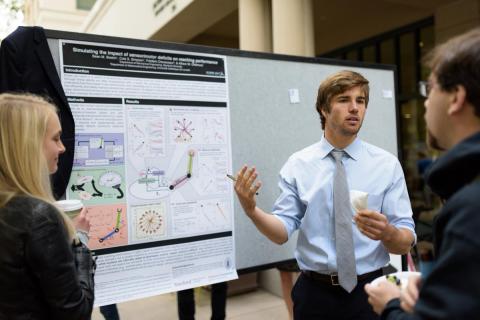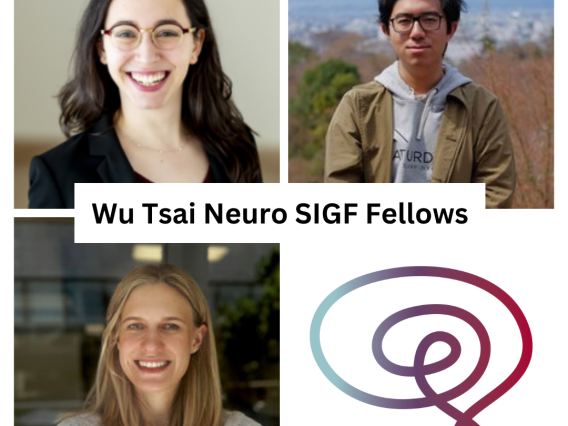Training the next generation of interdisciplinary neuroscientists
The Stanford Interdisciplinary Graduate Fellowship (SIGF) is a competitive, university-wide program that awards three-year fellowships to outstanding doctoral students engaged in interdisciplinary research. Three independent institutes, Bio-X, Wu Tsai Neurosciences Institute, and Sarafan ChEM-H award these graduate fellowships in the biosciences.
The Wu Tsai Neurosciences Institute partners with the Vice Provost for Graduate Education and Stanford BioX to award Stanford Interdisciplinary Graduate Fellowships (SIGFs) in the area of neuroscience. We are grateful to Bio-X and the Bio-X Leadership Council for incorporating the fellowships affiliated with the Institute into their application process.
Learn more about application details and eligibility criteria.
2025 SIGF Application
All applications submitted through the portal will be considered for the Stanford Interdisciplinary Graduate Fellowships (SIGFs) affiliated with the Wu Tsai Neurosciences Institute or Sarafan ChEM-H, the Bio-X SIGFs, and the Stanford Bio-X Bowes Fellowships.
Funded SIGF projects
Design and development of a high-performance intra-cortical speech BCI
Many neurological injuries and diseases such as brainstem stroke and Amyotrophic Lateral Sclerosis (ALS) result in severe speech impairment, drastically reducing quality of life. Recent progress in brain-computer interfaces (BCI) has allowed these individuals to communicate, but performance is still far lower than typical spoken conversation speeds.
Deep brain microstimulation for memory recovery
Yi Lui's project aims to use deep brain microstimulation (DBMS), which causes even less brain damage and has higher spatial resolution than DBS, for memory recovery.





